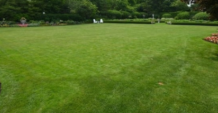For many years the Harvey County Farmers’ Market had a vendor that grew the best cucumbers around! If fact, he was known for his cucumbers and I especially liked his pickling type he brought to market. To this day I am reminded of him when I plant my own cucumbers in the back yard. Cucumbers are warm season crops that traditionally have required a lot of garden space. With a trellis and newer compact varieties, cucumbers may be grown in small spaces and even in containers.
Varieties:
Slicing cucumbers are long and slender, with a dark green skin. Improved new hybrid varieties include Dasher, Sprint, Raider, Burpee Hy, and Marketmore. Sweet Slice is a long, mild-flavored variety as is Sweet Success.
Pickling varieties are short and blocky in shape, with a firm flesh that makes a crisp pickle. Spartan Dawn, Liberty, Pioneer and SMR-8 are suggested varieties. Burpless—soft, mild-flavored types—include Burpless Hy as well as Sweet Slice mentioned before. Dwarf types include Patio Pik, Patio Pickle, and Spacemaster. Another novelty variety, Lemon, produces round, yellow fruit resembling a lemon.
When to plant:
Cucumbers require warm conditions with no danger of frost for best results. Soil temperatures should be approaching 60°F, which occurs in early May in most of Kansas. Using black plastic mulch to warm soil is a way of producing cucumbers earlier.
Spacing:
Cucumbers are usually spaced 2 feet apart in rows 5–6 feet apart. However, new dwarf types may be grown in 3-foot rows with plants 2 feet apart. Cucumbers may be transplanted by starting seeds in large containers and moving them carefully to the garden area.
Care:
Cucumbers are fairly shallow rooted and require caution at initial cultivation. One application of fertilizer along the row when the vines are 6–12 inches long will improve production into the bearing season. Cucumbers can be grown on a fence or cage, but you may have to help the vines get started up the trellis. Avoid areas where strong winds may damage vines, because cucumbers on a trellis are much more subject to injury than are tomatoes. Like other members of the vine crop family—muskmelon, watermelon, pumpkin, squash and gourds—cucumbers have separate male and female flowers on the same plant. Male flowers predominate and usually appear before female flowers start to develop.
Many newer cucumber varieties are of the gynecious type or have a larger number of female flowers for higher yields. Bees are required to transfer pollen from male to female flowers for the fruit to develop.
Harvesting:
Select firm, dark-colored cucumbers developed before the seeds have a hard seed coat and while the skin is tender. Small cucumbers may be harvested for pickles at any stage. Removing large, overgrown fruits will keep vines produce longer.
Cucumbers are fairly shallow rooted and require caution at initial cultivation. One application of fertilizer along the row when the vines are 6–12 inches long will improve production into the bearing season. Cucumbers can be grown on a fence or cage, but you may have to help the vines get started up the trellis. Avoid areas where strong winds may damage vines, because cucumbers on a trellis are much more subject to injury than are tomatoes. Like other members of the vine crop family—muskmelon, watermelon, pumpkin, squash and gourds—cucumbers have separate male and female flowers on the same plant. Male flowers predominate and usually appear before female flowers start to develop.
Many newer cucumber varieties are of the gynecious type or have a larger number of female flowers for higher yields. Bees are required to transfer pollen from male to female flowers for the fruit to develop.
Harvesting:
Select firm, dark-colored cucumbers developed before the seeds have a hard seed coat and while the skin is tender. Small cucumbers may be harvested for pickles at any stage. Removing large, overgrown fruits will keep vines produce longer.



